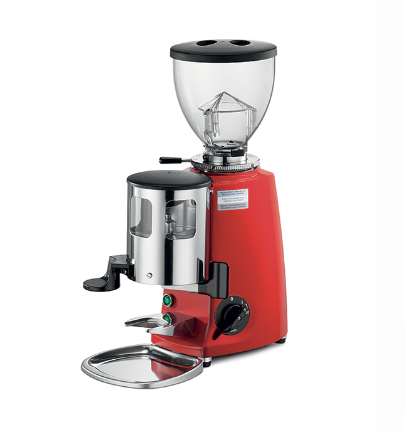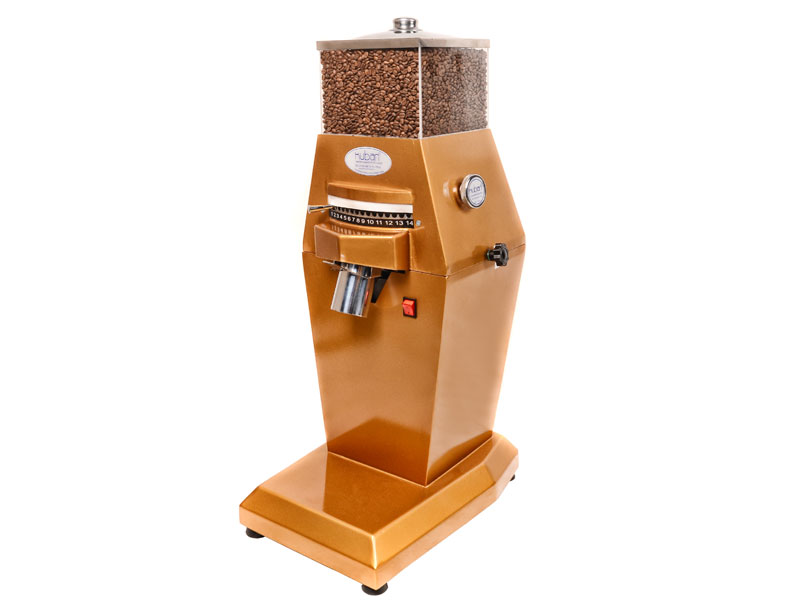Industrial Coffee Grinder vs. Domestic Grinder: Important Distinctions Explained
Industrial Coffee Grinder vs. Domestic Grinder: Important Distinctions Explained
Blog Article
Industrial Coffee Grinder Overview: Increase Performance and High Quality
In the competitive landscape of coffee production, choosing the ideal industrial coffee grinder plays an essential duty in enhancing both performance and product top quality. Comprehending the nuances of numerous grinder kinds and essential functions-- such as customizable grind setups and robust construction-- can substantially affect the final taste profile of the coffee.
Comprehending Grinder Types
When picking an industrial coffee mill, recognizing the various types available is critical for optimizing both taste extraction and functional effectiveness. The two key types of grinders are blade grinders and burr grinders. Blade grinders utilize sharp blades that slice coffee beans right into inconsistent sizes, resulting in uneven extraction and possibly undesirable flavors. While blade mills are commonly a lot more suitable and cost effective for small-scale procedures, they are generally not suggested for industrial use.

Eventually, selecting the right sort of mill is essential to preserving top quality and effectiveness in coffee production, making it critical for companies to buy top notch burr grinders for ideal outcomes.
Trick Functions to Take Into Consideration
Selecting an industrial coffee mill requires mindful consideration of numerous crucial attributes that can considerably affect both performance and the overall coffee experience. Among the key elements to evaluate is the grinding system. Burr mills are generally preferred over blade mills, as they supply a constant work dimension, which is important for optimal removal and flavor.
An additional essential feature is the grinder's ability. Depending upon the volume of coffee you require to procedure, select a version that can manage your requirements without compromising rate or top quality. Additionally, think about the grind setups offered. A flexible grinder with numerous settings allows you to customize the grind size to different developing techniques, improving the coffee's taste account.
Assess the mill's noise degree, particularly in a hectic coffee shop or production atmosphere, where extreme sound can be disruptive. Investing in a grinder that balances these functions can significantly boost both functional efficiency and the high quality of the coffee served.
Optimizing Grinding Refine
To attain the very best results in coffee preparation, maximizing the grinding process is vital. The grind dimension dramatically influences removal, flavor, and overall high quality of the made coffee. Various developing methods need particular grind sizes; as an example, coffee demands a fine work, while French press demands a crude structure. Understanding the connection between work dimension and brewing method is the primary step in optimization.


Furthermore, keeping an eye on the grinding speed can maximize the procedure. Slower grinding often creates less heat, preserving fragile flavors and scents. Alternatively, faster grinding may generate too much heat, negatively impacting the coffee's quality.
Upkeep and Care Tips
Appropriate maintenance and care of industrial coffee grinders are vital for guaranteeing ideal efficiency and durability. Routine cleaning is the structure of upkeep; residue buildup can impact flavor and grinding effectiveness. It is recommended to clean up the grinder after each use, cleaning down the outside and removing any type of coffee premises from the burrs.
Furthermore, examine the grinding burrs for wear and tear. Dull burrs can jeopardize grind uniformity, so they ought to be replaced as needed. Industrial Coffee Grinder. Periodically adjusting the mill is additionally vital, as this keeps the wanted work size for numerous brewing approaches
Lubrication of relocating components must be done according to the producer's specs, as this decreases rubbing and prolongs the life of the equipment. It is necessary to make use of food-grade lubricating substances to make sure security and compliance with health guidelines.
Lastly, keep the mill in a completely dry and steady Read Full Report environment to stop rust and deterioration. By adhering to these maintenance and treatment suggestions, drivers can improve the performance of their industrial coffee grinders while making sure top notch outcome and prolonged functional life.
Roi Analysis
Reviewing the roi (ROI) for industrial coffee mills is vital for services looking for to enhance their coffee production capabilities. A complete ROI evaluation assists identify the economic practicality of spending in premium mills, allowing companies to evaluate the initial costs against prospective gains.
Analyze the purchase cost of the grinder, including setup and any type of necessary adjustments to existing facilities. High-performance grinders typically lead to decreased grinding time and increased throughput, which can substantially enhance efficiency.
Additionally, consider the influence on product high quality. Industrial Coffee Grinder. Superior mills yield an even more consistent work dimension, which can boost flavor profiles and customer contentment, ultimately driving sales. By boosting the top quality of the final product, businesses can warrant higher pricing, leading to raised revenue
Final Thought
In summary, a commercial coffee mill plays a critical duty in improving both effectiveness and product quality within coffee manufacturing. Eventually, the calculated financial investment in a trusted grinder contributes dramatically to improved earnings and competition in the coffee sector.
In the affordable landscape look at more info of coffee production, picking the best commercial coffee grinder plays an essential role in boosting both performance and product high quality. The 2 main kinds of mills are blade mills and burr grinders. Within the burr mill classification, there are flat burr mills and conical burr mills, each with its advantages. Burr mills are typically liked over blade mills, as they supply a regular work size, which is essential for ideal removal and flavor.
In recap, a read what he said commercial coffee grinder plays an essential duty in boosting both effectiveness and item quality within coffee production.
Report this page